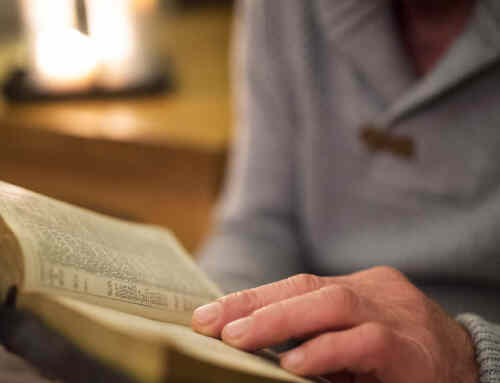Ruth chapter 1 describes how a Jewish man named Elimelech, his wife Naomi, and their two sons travel to the country of Moab. While there, the two sons marry two women of Moab, one of which is Ruth. Sometime after that, Elimelech and his two sons die. Ruth elects to remain with Naomi after her husband’s death, and together the two return to Bethlehem where Naomi knows a member of Elimelech’s extended family named Boaz maintains his household. Boaz is a man of great wealth (Ruth 2:1). Ruth decides to go to Boaz’s fields with the intention of gaining enough sustenance for her and Naomi to survive. Eventually, Boaz takes notice of Ruth and decides that he would like to marry her.
According to Jewish Law, the family of a deceased man such as the man’s brothers had the option of marrying their brother’s widow (Deuteronomy 25:5-10). This may seem odd by today’s standards, but in Ruth’s time, widows on their own had very little power to care for themselves. By taking over his brother’s household, including marrying his brother’s widow, a Jewish man could demonstrate concern and caring for those of his brother’s household who were in need.
By Ruth’s time, this law had clearly been extended to apply not only to a deceased man’s brother, but to more extended family as well. There was a hierarchy; the closer of a relative one man was to another determined how great a right he had to purchase the deceased’s household, including the right to marry the deceased’s widow. This is evidenced in Ruth 3:12, where Boaz tells Ruth that although he is her “kinsman,” meaning, of her family and thus eligible to purchase her deceased husband’s household and marry her, there is a closer relative to her deceased husband. That closer relative thus, according to Jewish Law, had a greater claim to Ruth than Boaz did.
Ruth 4:1-8 describe how Boaz arranges a meeting with this closer relative and the people’s elders, in accordance with the law laid out in Deuteronomy 25:7-8. At first, the relative agrees to buy Ruth’s deceased husband’s household, thinking it was only land. When he finds out that he must also marry Ruth, he declines, stating that by marrying Ruth he would damage his inheritance from his own, closer family (Ruth 4:6).
Having followed the Jewish Law by offering the relative the chance to purchase Ruth’s husband’s household and having the relative decline the offer in front of the elders, Boaz is legally free to purchase the household and marry Ruth. Ruth 4:9 records Boaz’s declaration to buy the household, and Ruth 4:10 records Boaz’s declaration that he will marry Ruth. Boaz’s words at the end of verse 9 (“that the name of the dead [Ruth’s husband] will not be cut off from among his brethren”) describe how Boaz’s actions were saving the household from collapse. Without a patriarch in charge of the household, it would have been dissolved and lost. Verses 11-12 are essentially “well wishes” of the elders and the people to Boaz, congratulating him on his decision. Rachel and Leah, mentioned in verse 11, were the wives of Jacob, who was later renamed to Israel (Genesis 35:10). The people’s words of verse 11 are exhortations that Ruth will make Boaz’s household great, as Rachel and Leah made their ancestor Israel’s household great. Verse 12 continues the exhortation for Boaz and Ruth to have a great household, this time comparing their future household to another ancestor, Pharez (Genesis 38:29).
Additional Resource:
For children, parents and Bible class teachers:
Animated video: Who were Ruth and Naomi?















